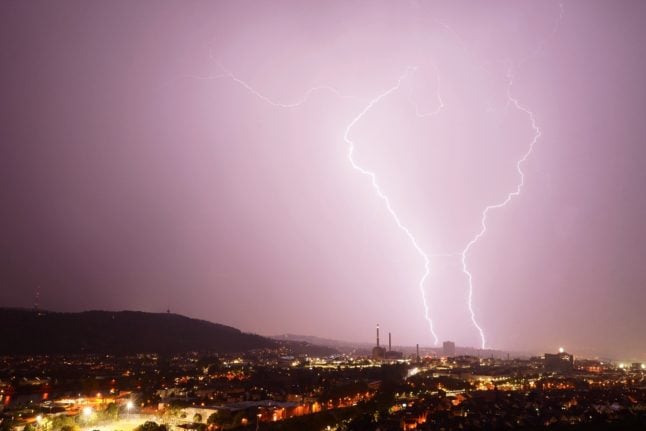It’s snowing, hailing and raining – and in some parts of Germany temperatures have even dipped to below freezing, with thick blankets of snow covering the landscape.
The reason is a persistent cold front, which will continue to provide cool weather that fluctuates between bursts of snow, rain and sun in the coming days. Germany lies in the influx of cold polar air from Arctic latitudes, wrote the German Weather Service (DWD) on its website.
On Tuesday, the maximum temperatures around the Bundesrepublik will shift between -3C and 7C.
Berlin will see both rainy and sunny weather, with a high of 6C. Snow showers will come to Hamburg in the early evening, with highs of 4C. Munich will also see light snow, with a maximum temperature of 3C and in Frankfurt there will be a mix of rain and snow, with highs of 7C.
“The coldest air mass possible at this time of year is right over Germany,” weather experts at Wetter.net wrote.
Until at least Thursday, the daily maximum temperatures around the Bundesrepublik will remain in single digits, according to DWD.
In addition, there will be a mix of rain, snow and sleet showers throughout the country.
In the low mountain ranges and the Alps, a few centimeters of fresh snow are possible each day, and at altitudes above 500 meters there may be permafrost.
Germany will warm up with sunny weather on Thursday, but – with a new rain band in the north – temperatures around Germany will again dip to lows of 8C on Friday.

While the mercury will go up over the weekend, there will still be rainy and cloudy weather around the country.
“Accordingly, it will hardly be warmer than 13 to 14C next weekend,” according to the forecast at Wetter.net. On Saturday, Berlin will see temperatures of 11C, Hamburg 9C, and Frankfurt 15C. Munich, and other parts of southern Germany, will see the sun over the weekend, with temperatures up to 18C.
With bad weather and icy conditions, there have also been several accidents recently, including two fatal crashes in north Germany on Easter Monday, when sudden snow resulted in slippery roads.




 Please whitelist us to continue reading.
Please whitelist us to continue reading.
Member comments